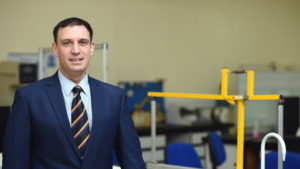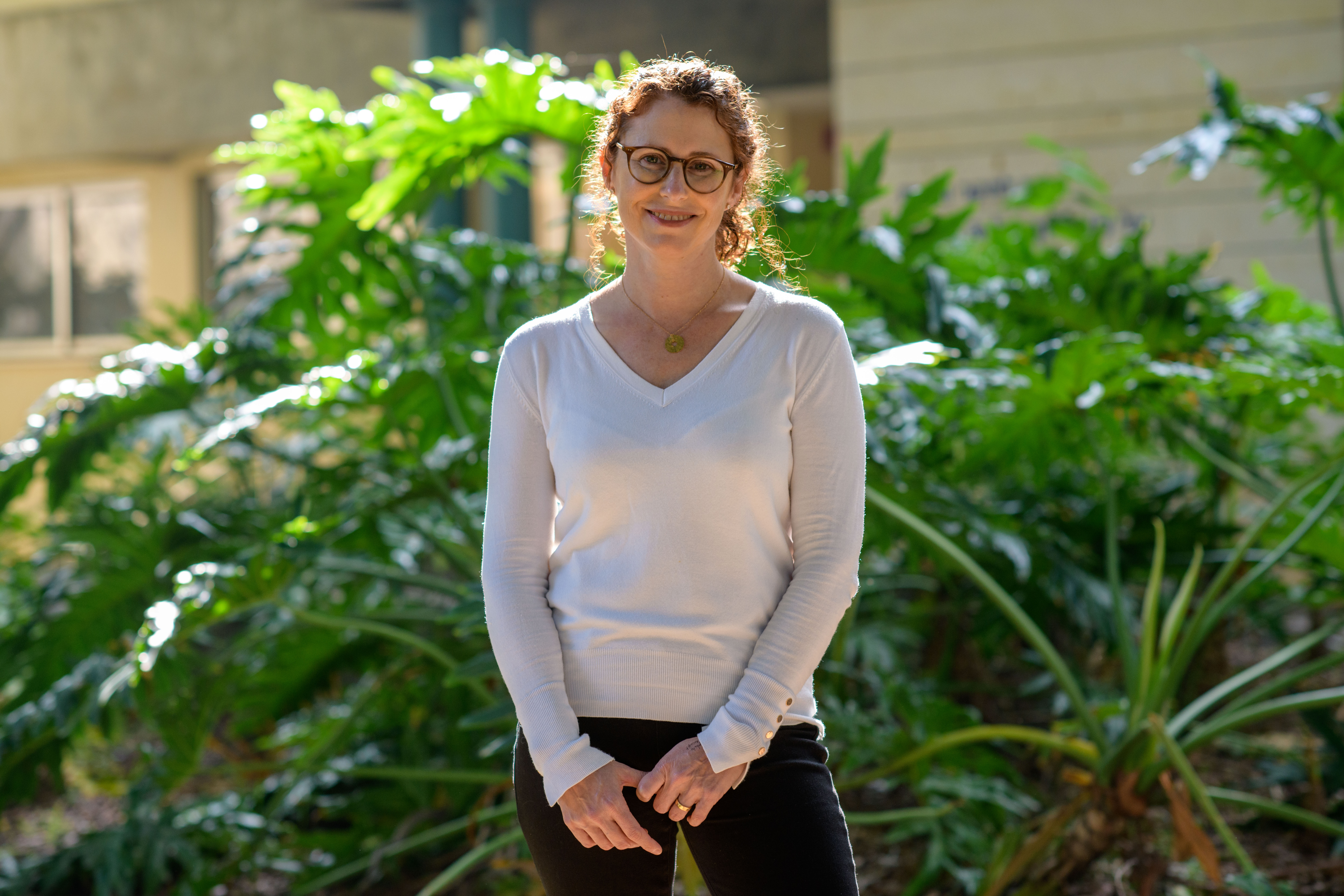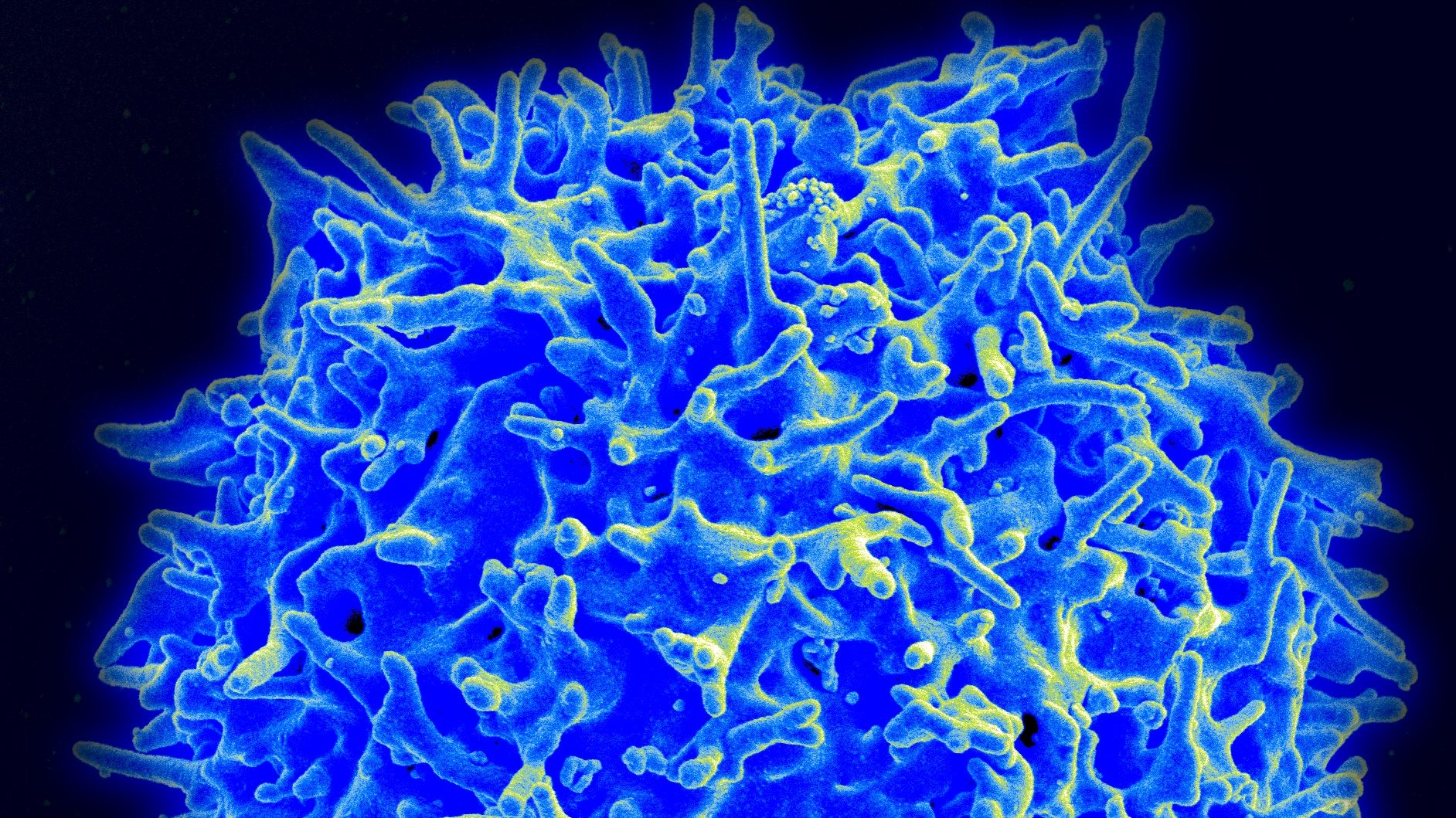Groundbreaking New Cancer Studies in the Middle East Show Promise
For World Cancer Day, leading researchers discuss pioneering breast cancer treatments, breakthroughs in immunotherapy and testing the limits of glucose starvation of tumors
As many of the world’s scientists and medical researchers battle to control the COVID-19 pandemic, others are racing to develop groundbreaking new ways to defeat another major disease: cancer.
According to the World Health Organization (WHO), the pandemic has had a significant impact on the fight against cancer, delaying diagnoses as well as hampering access to life-saving treatments. In a survey conducted in 2020, the WHO found that cancer treatments were disrupted in more than 40 percent of countries over the course of the year. To make matters worse, people with cancer also are at a higher risk of becoming seriously ill from the coronavirus.
One in five people worldwide will develop cancer over his or her lifetime. In 2020, some 19.3 million people were diagnosed with some form of the disease. On the eve of World Cancer Day, marked annually on February 4, the WHO further reported that breast cancer has overtaken lung cancer as the most common form of the disease. In fact, it accounts for 1 in 4 cancers diagnosed in women.
In the Middle East, researchers are paving the way for a number of groundbreaking new cancer treatments.
One such researcher is Dr. Ghaleb Husseini, a professor of chemical engineering at the American University of Sharjah (AUS) in the United Arab Emirates. In December, Husseini and his team – known as the ultrasound in cancer research group – managed to secure a US patent for a breast cancer treatment that lessens the negative effects of chemotherapy.
Husseini’s ingenious platform uses nanocapsules to target cancerous cells while simultaneously leaving healthy cells alone.
“We’re all familiar with the side effects of chemotherapy: it doesn’t only go to the tumor but goes all over the body,” Husseini told The Media Line. “We take the chemotherapy and put it inside a tiny capsule.”
“The idea is to put them in the blood of the cancer patient,” he said. “The heart is going to pump them everywhere but because they’re in a capsule they’re not going to interact with healthy cells. We release them only when they reach the tumor.”

Dr. Ghaleb Husseini, a professor of chemical engineering at the American University of Sharjah in the United Arab Emirates. (Courtesy)
Once the nanovehicles reach the breast cancer tissues, the drug inside is released via ultrasound waves, which ensures that the highest concentration of chemotherapy gets to the cancerous tissue.
In addition to the chemotherapy drugs, the researchers also use an antibody treatment called Herceptin to target the receptors of the cancer cells.
“We take the nanocapsule that we synthesize and we add a molecule that’s called Herceptin,” Husseini said. “These molecules will bind to these receptors. The key fits exactly into the lock,” he added.
The team currently is looking to replicate their results in animals, after which they will approach pharmaceutical companies to begin conducting clinical trials. While their focus now is on breast cancer, Husseini believes that his method could well apply to cervical and prostate cancer in the future.
Advances in Immunotherapy
Other scientists are exploring the potential applications of cancer immunotherapy, a treatment that aims to use the body’s own immune system to fight the disease.
Prof. Yardena Samuels is the head of the EKARD Institute for Cancer Diagnosis Research at the Weizmann Institute of Science in Rehovot in central Israel.
Her laboratory’s research follows on recent pioneering discoveries in cancer immunotherapy developed by researchers James P. Allison and Dr. Tasuku Honjo, who were jointly awarded the Nobel Prize in Physiology or Medicine in 2018. Allison and Honjo’s research focused on T cells, which play a central role in the body’s immune response. On the surface of these T cells, Allison discovered a protein called CTLA-4, which acts as a kind of brake – or immune system checkpoint – that stops the body’s immune system from dangerously overreacting to foreign invaders. They then found a way to block this “braking” action, thereby enabling the T cells free range to destroy malignant cells. This research paved the way for the development of a new class of drugs known as checkpoint inhibitors.
Many patients do not respond to checkpoint inhibitor drugs and this is where Samuels and her research team come in.
Her lab recently discovered a new category of peptides, or short chains of amino acids, on tumors that could be used to increase the effectiveness of cancer treatments in the future. Peptides are a crucial component of immunotherapy since they activate T cells to fight cancer; however, some patients have a shortage of these peptides, which could explain why immunotherapy is not always successful.

Prof. Yardena Samuels is the head of the EKARD Institute for Cancer Diagnosis Research at the Weizmann Institute of Science in Rehovot, Israel. (Courtesy)
“Further understanding of which patients respond to these checkpoint inhibitors and why certain patients do not respond to checkpoint inhibitors is an extremely important aspect,” Samuels told The Media Line.
“For checkpoint inhibitors to work, they need to recognize their target cells,” she said. “A complimentary part of immunotherapy is identifying neoantigens. If you identify them you can enhance the immune system’s ability to kill a target cell and you can even combine this with checkpoint inhibitors.”
Samuels’ study, carried out jointly with the Netherlands Cancer Institute in Amsterdam, focused specifically on melanoma, a deadly form of skin cancer. It was recently published in the scientific journal Nature.
Samuels and her lab currently are focused on identifying and mapping out the landscape of neoantigens, mutated antigens that specifically form on cancer cells. They are hoping to publish further results from their study before moving into setting up a clinical trial.
Starving Cancer Cells
Some researchers are testing the limits of cancer cell survival.
At his laboratory in Ben-Gurion University’s National Institute for Biotechnology in the Negev, located in southern Israel, Dr. Barak Rotblat and his team are exploring how cancer cells respond to different challenges, among them metabolic stress in the form of glucose starvation.
“Tumor cells love glucose much more than normal cells do,” Rotblat, who is also a senior lecturer at Ben-Gurion University (BGU), told The Media Line.
When tumor cells run low on glucose, he added, they “compete with each other over who will grab the glucose molecule.”
The malignant cells also learn to adapt to glucose starvation and it is precisely this adaptation process that Rotblat is hoping to block.
“Even if I don’t consume any glucose and eat only vegetables like lettuce, then still the body knows how to make glucose from other things,” he said.
One of the possible ways to ensure that the cancer does in fact starve is to use FDA-approved drugs that limit the growth of blood vessels into tumors (blood is responsible for transporting glucose). Another method would see the glucose absorption process inhibited altogether, leading to the death of the malignant growth. The BGU researchers are currently in the process of searching for therapeutics that can do just that.
The research is still in its initial stages and is being conducted with Dr. Gabriel Leprivier of the Heinrich-Heine-University in Dusseldorf, Germany.
Their initial findings were published in April in the scientific journal Nature. Specifically, the research examined the role of the AMP-activated protein kinase base (AMPK), a fuel-sensing enzyme that is present in mammalian cells and that promotes the survival of tumors under glucose deprivation. In other words, AMPK could be a target of therapeutic agents.
“When the tumor has low glucose it has to stop growing and making new proteins because, if it continues, then it burns itself out,” Rotblat said. “If we remove this ‘break’ molecule, [the tumor] will carry on as if it’s not starved and burn itself out.”
On World Cancer Day this year the WHO is raising awareness about the need to minimize exposure to alcohol and tobacco, both known carcinogens. According to the WHO, some 40% of cancers are preventable with healthy decision-making and by lowering the amount of drinking and smoking. Tobacco use alone accounts for a quarter of all cancer deaths globally, the WHO said. Significantly, the organization also found that nearly 11% of cancer cases in Europe were causally linked to alcohol consumption.


